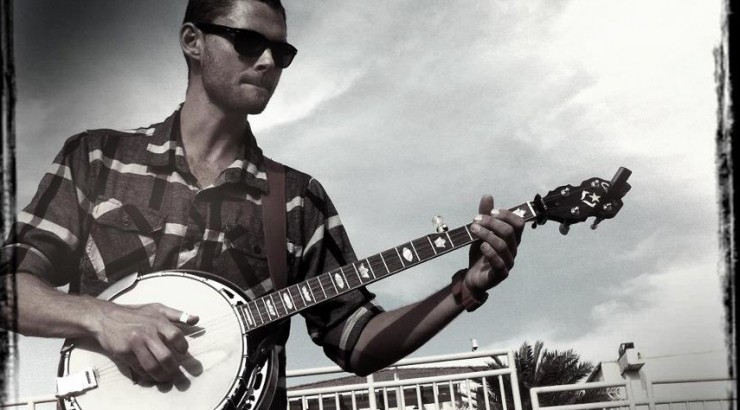
The Professor with a Bluegrass Soul
April 20, 2016
Growing up, Professor Travis Bartosh was a shy kid. It wasn’t until his first semester in college when his Communication Studies teacher, who eventually became his mentor, told him something transformational: “communication is a skill.” This made Professor Bartosh think of communication in a whole new way. As a child or teenager, striking up a conversation with somebody was not something Professor Bartosh would usually have done. He grew up thinking that one’s genetic makeup was the reason behind the ability to communicate effectively. Once he realized that communication can be learned, practiced, and approved on, it gave him hope that maybe he would someday break out of his shell.
Since that semester in college, Professor Bartosh has been learning what communication is and how to become a more competent, comfortable, and confident communicator. Students may be surprised to know that Professor Bartosh feels he is still learning. Since he started higher education at 18, he thought he would become more intelligent, but instead, he says has become more humble after grasping how much he doesn’t know and gradually realizing that he has much to learn.
Professor Bartosh is in the process of receiving his Ph.D. and is currently conducting research. In collaboration with Dr. Arleen Bejerano, he published a research article on gender communication titled: Learning Masculinity: Unmasking the Hidden Curriculum in Science, Technology, Engineering, and Mathematics Courses. The study examined the gendering of the STEM disciplines to answer the question, “Why are there so many men in the STEM disciplines?”
The research team took a unique approach by analyzing course syllabi and interpreted that these syllabi gave preference to a more masculine way of thinking, downplaying feminine ways of thinking. A masculine thought process is more linear, like the sciences, where it is a step-by-step formulaic approach. Whereas a feminine thought process is more holistic, looking at the broader picture and being able to jump to different points in a non-linear fashion. Professor Bartosh and Dr. Bejerano discovered that if one’s very first exposure to a STEM class is a course syllabus, then on a subconscious level, it is more welcoming to men than women.
Other than his passion for research and teaching, Professor Bartosh has a great passion for playing music. By voraciously reading music books, he taught himself how to play the bluegrass banjo, one of his all-time favorite loves. He often wonders whether he would run off and play professionally if it weren’t for his passion for academia. As the ultimate stress reliever, he plays music and the banjo to unwind. And yet, his first instrument was the electric guitar which he showed off with in a punk band he joined as a young kid growing up in southern California during the 90s when the skate and surf punk music was the ‘in thing’.
It wasn’t until a perfect storm of events came about that Professor Bartosh turned his attention from punk to bluegrass music. His uncle, also a musician, handed him the banjo at the same time the soundtrack, “O Brother, Where Art Thou?” was released and he was given the Nitty Gritty Dirt Band CD called, “Will the Circle Be Unbroken.” These two occurrences changed the route of his music life and it’s no wonder he feels so lucky to be a part of Chapman Radio. Ever since the age of 10, Mr. Bartosh’s passion for music has been shaping his heart and soul.
Whether conveying a feeling or message through music or spoken words, Professor Bartosh’s passions for teaching and playing the banjo are just one of many ways he genuinely desires to make a positive difference in the lives of others.
He cherishes his students as they are what make teaching for him one of the best experiences he has as a Professor at Chapman University. To him, Chapman students stand out among many other students he’s come across from different colleges simply because they are great at engaging and participating. “Engagement,” as he puts it, is one of the best ways students can gain the most out of his classes.
Professor Bartosh’s advice on succeeding as one of his students is clear when he states, “I don’t want students who just show up, get out their computer, and just take notes. I want students who are going to raise their hand, contribute, and question what I say. I think that the way you learn best is by doing. Learning is about being actively engaged with the instructor and other students.”
As long as he continues to teach and play the banjo, he will continue to make the a positive impact on many students at Chapman University.


